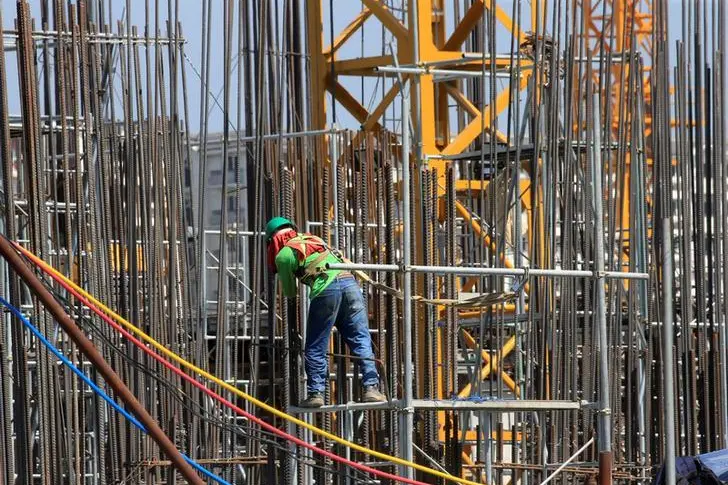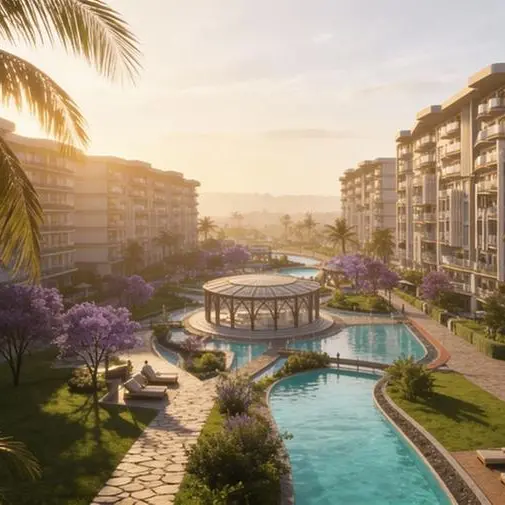PHOTO
Abu Dhabi's Dh50 billion stimulus package and fresh investments in oilfields and infrastructure development will drive demand for the construction and heavy machinery sectors in the UAE in the coming years, according to industry executives.
Ashraf A. Hashish, Senior GM - Marketing, Komatsu Middle East FZE, said the Dubai market is performing fairly okay, but they are expecting more business to come from Abu Dhabi especially from investments in the oilfield, mining and quarries businesses.
"The Dh50 billion stimulus package, which was announced by the Abu Dhabi government this year, is already starting to reflect in the market as we witness growth in demand from construction machinery, oilfield and some mining and quarries business," he said. Hashish believes that for the next three years, the growth trend will continue in the UAE, especially in oilfield and social development projects like new residential initiatives and construction activities.
"Expo 2020 Dubai played a key role in heavy machinery industry demand over the last two years but this demand will start slowing as the number of Expo-related projects approaches completion," he added.
Headquartered in Tokyo, Komatsu is a manufacturer of construction, mining, forestry, and military equipment, as well as industrial equipment. Hashish was speaking on the sidelines of 'Technology Day', organised by Komatsu and Topcon Positioning Group in partnership with their local partner Galadari Trucks and Heavy Equipment.
The event was organised to demonstrate and simulate Smart Earth-moving processes on a realistic construction site as well as showcasing state-of-the-art technology that can optimise machine productivity and workflow and reduce costs for all parties in the supply chain.
John James Fahy, construction regional sales manager, Topcon Positioning Group, said there is a huge shift in the UAE and Middle Eastern markets as more and more governments are looking at smart cities and smart infrastructure and a lot more contractors are now open to new technologies.
"With the surge in population growth, we will see the need for more infrastructure in the future. Governments and contractors that move ahead with technology mandates can likely boost the competiveness of their infrastructure sectors and the industries that use them, improve the quality of life for their citizens and economise on infrastructure investment in the long run," Fahy added.
The infrastructure needs in the UAE are increasing every year. Maintenance of roads and runways are needed across the emirates. Today, conventional construction methods are time-consuming and can have a negative impact on the construction process. Traffic and congestion is a major problem for contractors and governments. Turning to technology like Topcon's Smoothride or mmGPS can alleviate a lot of that congestion and uncontrollable expenses on many milling and overlay jobs in the UAE. Government agencies will have to turn to technology like Topcon in order to get the jobs done quicker and with less disruption."
Productivity, safety
Topcon, another Japanese company, deals predominantly, among others, in infrastructure projects through the supply of its state-of-the-art technology that helps reduce cost and waste, increase productivity and improves safety. Fahy believes Dubai Harbour, Expo 2020, Kizad Port and development of roads and infrastructure in Abu Dhabi will drive the growth of the industry.
"I see Abu Dhabi is an area that in the next couple of years will see a lot of developments such as oilfield and gas and infrastructure projects," he said, adding that Topcon is looking at year-on-year growth of 20 per cent across the Middle East.
Samer Khalid, General Manager at Galadari Trucks, pointed out that driving factors will be the Dh3 billion development announcement in the Western region, oilfield projects in Abu Dhabi and a lot of infrastructure work that still needs to be done.
"I think 2019 will be better than 2018 and more and more projects will soon be awarded for local companies. 2018 is almost the same as 2017; we are the market leader in the UAE for the last six years and expect to end 2018 with 46 per cent market share. We are confident to maintain our leadership position," Khalid said on the sidelines of the event.
'TECHNOLOGY DAY' DISCUSSES KEY TRENDS
The rate of technology adoption in this region for heavy machinery is much less than that of Europe and the US but there is strong willingness to embrace and invest in new technologies, said Carsten Frantzen, Business Development Manager for Construction for Europe, the Middle East and Africa at Topcon.
"The technology adoption rate here is maximum 1 per cent. In Europe and the US, we are about 10-15 per cent and up to 35 per cent in certain dedicated areas, which means we are behind other regions. But we have special conditions here but a very high willingness to invest in high technology. To bring high-tech to this region and use it and digitise it to reduce operational cost and save the environment, there is a need to invest in this technology," he said.
Frantzen stressed that if firms always look for cheapest prices, then they have just 2-3 per cent profit and will not be able to invest in new technologies. But investing in high-quality technology will result in better quality and reduced maintenance cost.
He noted that heavy machinery industry is now using GPS and the cloud with real-time data monitoring with extremely high level of efficiency and productivity, which practically makes machine drivers almost redundant.
- waheedabbas@khaleejtimes.com
Copyright © 2018 Khaleej Times. All Rights Reserved. Provided by SyndiGate Media Inc. (Syndigate.info).





















